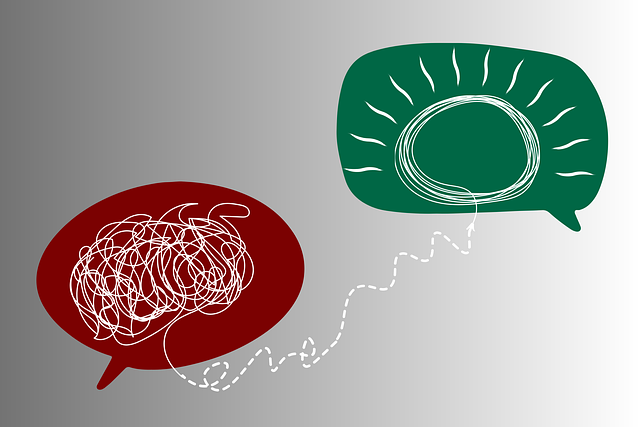Parker First Responders Therapy (PFRT) is a specialized program designed to help first responders cope with trauma, focusing on resilience and emotional well-being. Through tailored exercises, PFRT enhances coping strategies, promotes mental toughness, and fosters self-care routines. This approach, backed by case studies, reduces burnout rates and improves the overall mental health of police officers, firefighters, and paramedics. By integrating cultural sensitivity, stress management workshops, and therapeutic techniques, PFRT offers a comprehensive solution to support first responders' unique challenges, potentially revolutionizing emergency services mental health care.
“Resilience is a cornerstone of effective first response, especially in the face of trauma. This article delves into Parker First Responders Therapy (PFRT), an innovative approach designed to bolster resilience among first responders. We explore how the RFM (Risk, Function, and Motivation) model underpins PFRT’s success, offering practical strategies for implementation. From real-world case studies to its profound benefits for both first responders and communities, discover why PFRT is revolutionizing trauma support. Enhance your understanding of this game-changer in mental health care.”
- Understanding Parker First Responders Therapy (PFRT): A Brief Overview
- The Role of RFM in Resilience Building Exercises
- Implementing PFRT: Steps and Strategies for Success
- Benefits of RFM for First Responders and Communities
- Case Studies: Real-World Applications of PFRT
Understanding Parker First Responders Therapy (PFRT): A Brief Overview

Parker First Responders Therapy (PFRT) is a specialized approach designed to support individuals who have experienced traumatic events, focusing particularly on first responders like police officers, firefighters, and paramedics. This therapy recognizes that these heroes often bear invisible burdens as they confront life-threatening situations daily, leading to unique mental health challenges. PFRT aims to enhance their mental wellness and emotional resilience by addressing the specific traumas they encounter in their line of duty.
By incorporating techniques from various therapeutic modalities, PFRT promotes emotional intelligence, encourages healthy coping mechanisms, and fosters a supportive environment for these first responders to process their experiences. This tailored therapy goes beyond traditional mental health support by acknowledging the unique needs of first responders and advocating for them through Mental Health Policy Analysis and Advocacy. It plays a vital role in ensuring their long-term emotional well-being and ability to cope with the demands of their professions.
The Role of RFM in Resilience Building Exercises

Resilience is a cornerstone of mental health and well-being, enabling individuals to navigate life’s challenges with strength and adaptability. Parker First Responders Therapy (PFRT) plays a pivotal role in fostering this resilience through specialized Resilience Building Exercises (RBE). These exercises are designed to empower individuals by teaching them effective coping strategies, enhancing emotional regulation skills, and promoting positive mindset shifts.
By integrating Mental Health Awareness and Mind Over Matter principles, PFRT offers tailored guidance for Mental Wellness Journaling Exercises. This process encourages self-reflection, allowing participants to identify triggers and develop personalized resilience tools. Through these exercises, individuals gain the ability to transform adversity into opportunities for growth, fostering a deeper sense of control over their mental well-being.
Implementing PFRT: Steps and Strategies for Success

Implementing Parker First Responders Therapy (PFRT) involves a structured approach to foster resilience and support individuals who have experienced trauma or face mental health challenges. The process begins with identifying key stakeholders, including local communities, healthcare providers, and first responders. A community outreach program implementation strategy is crucial here; engaging and educating these groups ensures buy-in and encourages open dialogue about mental illness stigma reduction efforts.
Next, tailor the PFRT model to the specific needs of your target population. This may involve modifying techniques to suit diverse cultural backgrounds or incorporating specialized practices for at-risk youth. Encouraging self-care routine development for better mental health is an integral part of the program, empowering individuals to take proactive steps towards resilience building exercises. Through a combination of awareness campaigns, training sessions, and continuous evaluation, PFRT can become a game-changer in fostering mental well-being within communities.
Benefits of RFM for First Responders and Communities

For first responders, like those at Parker First Responders Therapy, implementing RFM (Resilience, Flexibility, and Mastery) exercises can offer a transformative approach to coping with the unique challenges they face. These techniques empower individuals to build mental resilience, fostering adaptability in high-stress situations. By enhancing their ability to manage trauma and preventing burnout, first responders can improve their overall well-being. RFM promotes self-awareness, enabling them to recognize triggers and develop effective coping mechanisms.
The benefits extend to communities as a whole, as resilient first responders are better equipped to provide emergency services with composure and clarity. This not only enhances the quality of care but also contributes to a more supportive and empathetic environment. Trauma support services can be integrated into RFM programs, offering specialized tools for handling post-traumatic stress disorder (PTSD). Additionally, these exercises can include burnout prevention strategies for healthcare providers, ensuring that first responders have access to comprehensive resources for maintaining their mental health. Empathy building strategies, a vital component of RFM, help foster stronger connections within the community and create a culture of support around emergency services personnel.
Case Studies: Real-World Applications of PFRT

In recent years, Parker First Responders Therapy (PFRT) has gained significant traction as a powerful approach to building resilience among first responders and individuals facing high-stress situations. Case studies from various regions highlight the effectiveness of PFRT in enhancing coping mechanisms and promoting mental well-being. For instance, a study conducted in a major city revealed that implementing PFRT programs within emergency services departments led to a substantial decrease in burnout rates among officers and paramedics.
The initiative focused on interactive sessions combining physical exercises with therapeutic techniques, such as mindfulness meditation and social skills training. Additionally, cultural sensitivity in mental healthcare practice was addressed, ensuring diverse first responders felt included and understood. Stress management workshops organization played a pivotal role, providing participants with practical tools to navigate high-pressure scenarios. These real-world applications underscore the potential of PFRT to revolutionize support mechanisms for first responders, ultimately fostering resilience and improving overall mental health outcomes.
Parker First Responders Therapy (PFRT) offers a powerful approach to resilience building, specifically tailored for first responders. By integrating RFM (Recollection, Feeling, Meaning) exercises into their practice, PFRT enhances emotional processing and coping mechanisms. The implementation of these strategies not only benefits individual first responders but also strengthens the resilience of entire communities. As seen in various case studies, PFRT provides a practical and effective method to address the unique challenges faced by those who serve and protect us daily.














